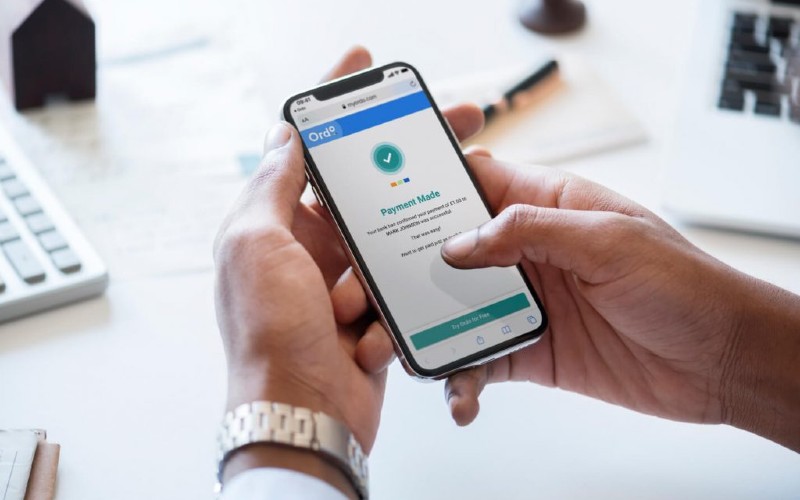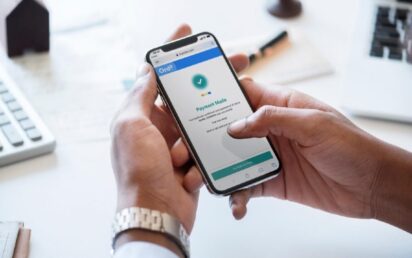In times of hardship, it is only natural that people look to trim their outgoings.
Fliss Berridge of Ordo, third on our FinTech 50 ranking, says that for many this means ditching monthly direct debits.
“During COVID we carried out a financial health check survey which showed that almost half of people had cancelled at least one direct debit [due to the effects of the pandemic],” the co-founder tells BusinessCloud.
“We’ve now moved seamlessly from lockdown into a cost-of-living crisis – and people’s situations aren’t going to have gotten any better since we did that survey. So businesses really need a way to cut their costs without cutting the service to their customers.
“Open banking is a way to do that: having an efficient, secure, convenient method for collecting payments that replaces direct debits.”
London-based Ordo is an open banking payments-as-a-service platform which enables businesses to collect payments for single and recurring bills via paper bills, email, text or any other messaging platform. It does this by providing a QR code or secure tokenised link which takes people into their bank account, where the payment request is waiting – all they have to do is click a button to authorise it.
Variable Recurring Payments (VRP)
The coming technology described by Berridge – known as Variable Recurring Payments – could save businesses time and money while giving their customers much-needed flexibility over the amounts paid.
“VRP is a real-time dynamic repeating payment where both the business and consumer have control and certainty – an enhanced direct debit,” she explains. “It gives you far more flexibility, which is exactly what people need to manage their finances right now. Businesses need to be aware that this is what their customers are probably going to demand in future.”
For example, a publisher could give readers the ability to flex payments up and down according to the amounts and type of paywall content they wish to access in any given month.
“We will manage the whole subscription arrangement – making sure the limits are not exceeded, taking the payments and allowing for the customer to manage this,” says Berridge.
Sweeping
The first use-case for VRP is ‘sweeping’. Social lender Moneyline, already using Ordo for individual customer repayments as well as secure initial loan payouts, has extended their partnership to pilot this white-labelled solution.
Borrowers will be able to be more dynamic with their repayments, juggling them to match their income without having to authorise every payment.
“Sweeping is where you set up an agreement with a provider that you want to sweep money from one account to another account – as long as they are both in your name,” explains Berridge.
“So on the day before payday every month, if there’s any money left in your current account, you can arrange for it to be swept into your savings account, a loan repayment account or to pay off a credit card bill.”
Moneyline helps people – many of whom do not have access to bank overdrafts – to gain access to affordable credit. Its customers can pay using Ordo from more than 98% of the UK’s banks, without any app download or registration needed.
Berridge says Ordo, too, is a value-driven company. “The institutional investor that we have is Nationwide Building Society which has a certain value in recognising people and a wider societal good. We’re not out just to make millions at the cost of our employees and customers,” she says.
“There’s a need for this new solution – we genuinely think it will help people and businesses.”
Faster Payments
Ordo, which recently raised £10 million in Series A funding from private and institutional investors, was founded in 2018 by the former management team of Faster Payments – the system used by banks for making online and mobile payments.
“We know ‘geek levels’ about payments, and we’ve built a system that’s easy for businesses to use. We’re a business-first company and that’s the differentiator with our competitors,” says Berridge.
“A lot of the other players in the market are quite tech- and API-driven so if a business uses one of those services, they’ll have to do a lot of tech builds themselves.
“Our target market is corporates – medium-to-large-sized businesses. Our strategy is to go through channel partners, the integrators, to reach the most people possible.”
For example, Pay360 by Capita is an IT system and platform used by most councils in the UK. “They’ve integrated Ordo into their platform. A council using it can plug-and-play our system and can start saving from day one,” says Berridge.
With the funding raised to date, Ordo plans to scale its sales and marketing functions, which will continue into 2023, to meet increasing demand for open banking.
FinTech 50 – UK’s most innovative financial technology creators for 2022


